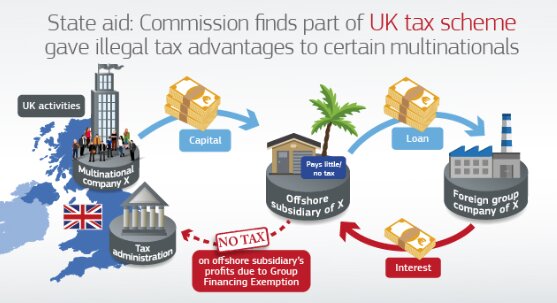The European Commission found on April 2 that part of the U.K. Controlled Foreign Company rules were illegal and ordered the U.K. to recover the unpaid taxes from the companies that used this tax scheme in 2013-18. In view of the commission, the U.K. tax rule provided an advantage to certain multinationals that avoided taxation over offshore profits. This part of the scheme was found in breach of EU State aid rules. At the same time, another part of the tax exemption was considered lawful provided that there were not U.K. activities involved in the generating of finance profits.

Based on companies’ reports, different sources estimated that the amount to be recovered could amount to $1.5 billion. Yet, as the European Commission partially considered the tax scheme to be lawful, it is likely that the companies’ exposure won’t exceed $1 billion. It isn’t clear how many companies used this scheme from 2013 to 2018. Bloomberg and Reuters estimate that more than 50 U.K. companies may have benefited, including BBA Aviation, Chemring, Daily Mail & General, Diageo, Euromoney, Inchcape, Imperial Brands and London Stock Exchange.
A hard-brexit, yet unlikely, could play out well for the companies affected. Under a no-deal brexit scenario, the U.K. may decide not to recover the State aid just to protect the U.K. companies and the European Commission won’t have many legal mechanisms to force the U.K. to do it. As the European Commission stated in its press release, the U.K. is bound by EU law and State aid rules for as long as it is a member of the European Union. While the obligation for the U.K. to comply with this decision originated before exiting the European Union and it should last regardless of the Brexit negotiations, it is safe to assume that under a hard-Brexit, the U.K. may not have the same incentives to honor all of its pre-Brexit obligations, including recovering this State aid.
However, if the U.K. would like to appeal this decision to the General Court of the European Union, it should recover the money from the companies first. Even under a no-deal scenario, the U.K. could resort to the EU courts because a decision from an EU institution can be reviewed by EU courts, though the country would still have to recover the unpaid taxes before challenging the decision.
